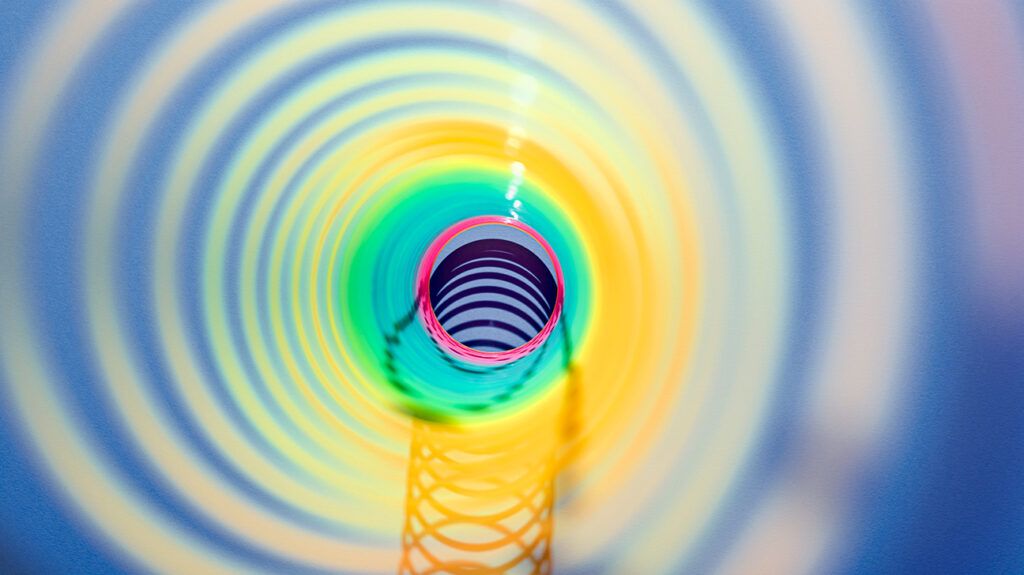Hypnotherapy can be an effective complement to traditional treatments for depression, as well as many other conditions.

When you live with depression, it can feel isolating and lonely at times. It may be hard to imagine how things will get better, especially if you’ve been trying to improve your mood for some time.
You’re not alone. According to the World Health Organization (WHO), depression is a common mental health condition affecting an estimated
Many find help with traditional treatments, such as therapy and medication. But it may take some trial and error to find the combination that works best for you, and there are additional treatments that may help.
Hypnotherapy is a complementary treatment for depression that may be used in combination with traditional approaches. This can be very effective in treating depression, along with a number of other health conditions.
Hypnotherapy, also called hypnosis, is a type of therapy that helps you achieve a heightened state of awareness and focus. Contrary to popular belief, you’re not in a state of amnesia or unaware of what’s happening. With hypnosis, you enhance your awareness by relaxing and focusing your mind.
How it works
During hypnotherapy, a trained hypnotherapist uses guided relaxation techniques and verbal cues to help you reach a deep state of relaxation. Sessions typically last about an hour.
“In this relaxed state, you are more open to suggestions and can work with the therapist to address a range of issues,” says Amira R Martin, LCSW-R, a mental health therapist from Brooklyn, New York, and adjunct professor with Columbia University School of Social Work.
Martin states that hypnotherapy can help with many common conditions, including:
- anxiety and stress
- phobias and fears
- depression
- sleep disorders
- chronic pain
- irritable bowel syndrome (IBS)
- smoking cessation
- weight loss
Hypnotherapy for depression involves the use of guided imagery, visualization, and positive affirmations to help you change negative thought patterns and behaviors.
2022 research shows hypnotherapy is effective in alleviating the symptoms of depression when combined with other psychotherapies, such as cognitive behavioral therapy (CBT).
Sera Lavelle, PhD, a clinical psychologist at NY Health Hypnosis & Integrative Therapy, agrees. Lavelle’s group practice incorporates hypnosis and other forms of therapy into depression treatment.
“This integrated approach of hypnosis and therapy has been shown to alleviate depression to a greater degree than therapy alone,” she says. “And this effect is maintained even after therapy has ended.”
Martin notes that while hypnosis can be an effective complement in treating depression, it shouldn’t be used as a substitute for traditional treatments, such as medication and therapy.
Potential pros of hypnotherapy for depression
Lavelle says there are a host of benefits from combining hypnosis with therapy, which have helped people recover from depression. The combined approach can help you:
- think more clearly
- develop positive thinking and hopefulness
- improve decision-making and impulse control
- identify and address negative thought patterns and beliefs
- reduce rumination
- improve social interactions and coping skills
- encourage a sense of empowerment
- take meaningful action
Potential cons of hypnotherapy for depression
While hypnotherapy is a non-invasive treatment with many benefits and few side effects, there are some potential downsides:
- It may not be effective for everyone.
- It may take several sessions to see results.
- It may not be covered by insurance.
Also, you shouldn’t use hypnotherapy if you have psychosis or certain types of personality disorder, as it could make your condition worse. Be sure to check with your general practitioner first.
Finding a hypnotherapist
Hypnotherapy should always be used under the guidance of a trained hypnotherapist.
A good place to start is with professional organizations, such as:
- American Society of Clinical Hypnosis (ASCH)
- National Board for Certified Clinical Hypnotherapists (NBCCH)
- International Hypnosis Association
The ASCH is the largest and most prestigious training institute for hypnosis, and only mental health professionals are able to join.
“If you’re considering hypnosis for anything mental health-related, especially depression, be sure to check the hypnotherapist’s credentials to make sure they are licensed as a therapist,” Lavelle advises.
If hypnotherapy doesn’t sound like the path for you, there are many other treatments, often used in combination, that can help with depression. You may want to talk to your doctor about all of your options, including:
- therapy, such as CBT, to help you identify and change negative thought patterns and behaviors
- antidepressant medications to help lift your mood and increase motivation
- relaxation techniques, such as progressive muscle relaxation (PMR), music therapy, and yoga
If you live with depression, there are many effective treatments that can bring relief, including hypnotherapy.
Talk to your doctor to find out if hypnotherapy, combined with traditional treatments, may be a good option for you.
You can find a licensed therapist trained in hypnotherapy through professional organizations, such as the American Society of Clinical Hypnosis (ASCH).
Need help now?
If you or someone you know is considering suicide or self-harm, you’re not alone. Help is available right now:
- Call the National Suicide Prevention Lifeline 24 hours a day at 800-273-8255.
- Text “HOME” to the Crisis Textline at 741741.
Not in the U.S.? Find a helpline in your country with Befrienders Worldwide.
